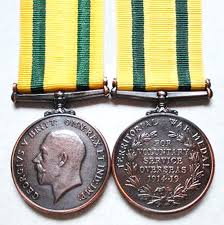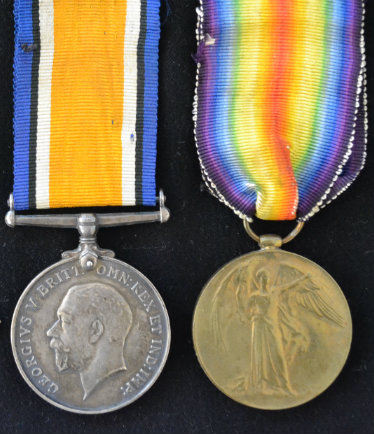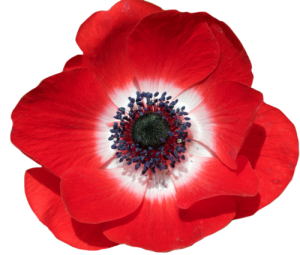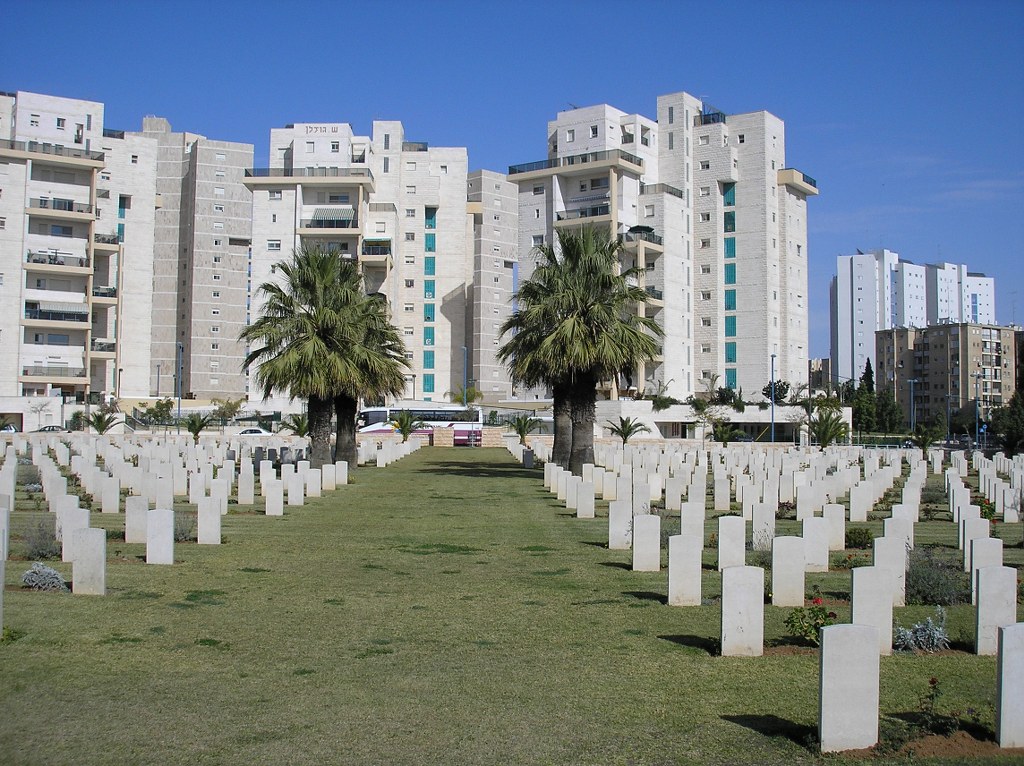Personal Details
William Charles Darlington was born in Woolton, Lancashire in 1886, the eldest son of Abraham and Elizabeth Ann Darlington of Church Farm, Ightfield, Whitchurch, Shropshire. William became a farmer in his own right, farming Ash Acres Farm in the parish of Whitchurch.
William’s younger brother, Abraham, was also killed in the Great War.
Military Details
Regiment : 2nd/4th Battalion Queen’s Own Royal West Kent Regiment, formerly King’s Shropshire Light Infantry ( 230016) and 1st Shropshire Yeomanry (962)
Rank : Second Lieutenant
Service Number :
Killed in action; Palestine 4 November 1917 Aged 31

The Territorial Force War Medal was a campaign medal awarded to members of the British Territorial Force and Territorial Force Nursing Services who served overseas in World War I; it is the rarest of the five British Great War medals.
The medal was established in April 1920 for award to members of the Territorial Force and Territorial Force Nursing Services who volunteered for service overseas on or before 30 September 1914, and served overseas. They had to have been serving with the force on 4 August 1914 or have completed four years service with the force before 4 August 1914 and rejoined the force on or before 30 September 1914.

The British War Medal (also known as 'Squeak') was a silver or bronze medal awarded to officers and men of the British and Imperial Forces who either entered a theatre of war or entered service overseas between 5th August 1914 and 11th November 1918 inclusive. This was later extended to services in Russia, Siberia and some other areas in 1919 and 1920. Approximately 6.5 million British War Medals were issued. Approximately 6.4 million of these were the silver versions of this medal. Around 110,000 of a bronze version were issued mainly to Chinese, Maltese and Indian Labour Corps. The front (obv or obverse) of the medal depicts the head of George V. The recipient's service number, rank, name and unit was impressed on the rim.
The Allied Victory Medal (also known as 'Wilfred') was issued by each of the allies. It was decided that each of the allies should each issue their own bronze victory medal with a similar design, similar equivalent wording and identical ribbon. The British medal was designed by W. McMillan. The front depicts a winged classical figure representing victory. Approximately 5.7 million victory medals were issued. Interestingly, eligibility for this medal was more restrictive and not everyone who received the British War Medal ('Squeak') also received the Victory Medal ('Wilfred'). However, in general, all recipients of 'Wilfred' also received 'Squeak' and all recipients of The 1914 Star or The 1914/1915 Star (also known as 'Pip') also received both 'Squeak' and 'Wilfred'. The recipient's service number, rank, name and unit was impressed on the rim.
Further Information
Taken from Forces War Records
William made his will on the 15th November 1915, appointing his father Abraham Darlington as executor. He gave £20 to his sister, Martha Ann, £20 to his brother, Frederick, and his silver watch and gold chain to his brother, John Hector. He gave the residue of his estate to his father, or, in case of his father’s death, to his mother.
If you can provide any further information on William Charles Darlington please get in touch by leaving a comment below, using our Contact Form or by calling in to Whitchurch Heritage Centre.
Information provided by Whitchurch Museum and Archives


